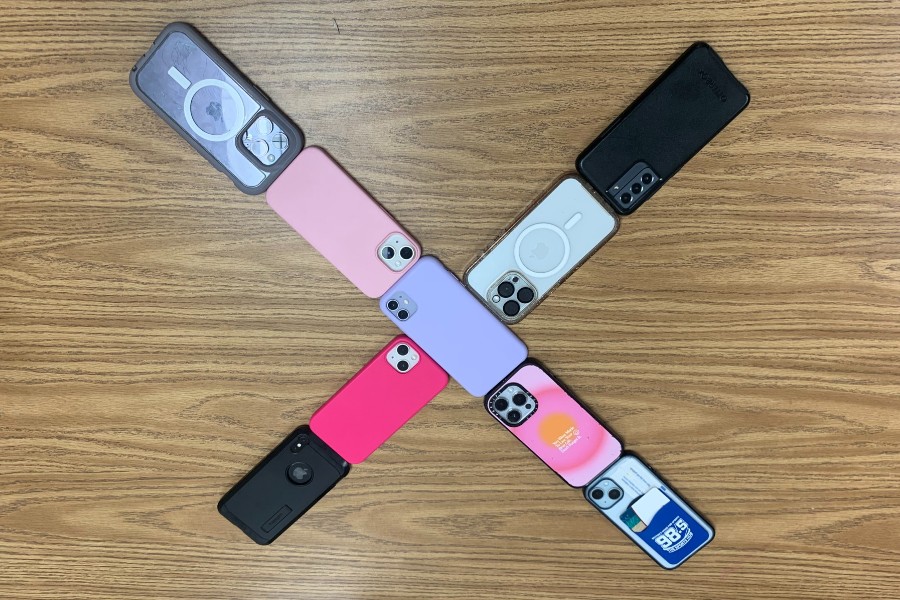Over the past year, many schools from all around Massachusetts have implemented phone bans and policies to better the focus of students during school. Westford has been no exception and has followed the lead of other districts, stirring up conversations about phone use in schools.
After trying out a no phone week back in May, WA is now implementing a new rule this school year where students are required to put their phones into a pocketed organizer, also known as a “phone jail” or keep them in their bags, depending on their teacher’s preference during class. With the exception of lunch and passing periods, students are no longer permitted to go on their phones during the school day unless a teacher allows phone use for an activity.
The phone policy was enacted to increase attention during class, and while some students feel indifferent to the policy, other students strongly dislike it and feel it is unnecessary.
“I hate it because I can’t contact home [and don’t like it] when the teacher expects you to put your phone in a phone jail [pocket organizers] or keep it in your backpack at all times,” junior Olivia Bernier said.
Students that feel strongly about the policy also believe that the phone jails are needless. The phone jails are meant to further prohibit students from even sneaking a glance at their phones during class, as the phones must stay in the pockets until the end of class with almost no exceptions of them being taken out.
Other students have had a very different reaction to the news of the policy. Many students are unaffected by it and don’t feel as if its implementation needs to be a big deal.
“I didn’t care that much because I don’t really use my phone in class,” sophomore Mithra Senthilraja said.
Even though the students are the ones who have to give up their phones during class, many teachers feel as if the policy is helpful for their teaching.
“I think it’s a good policy,” German teacher Ashley Smith said. “It doesn’t really seem all that different [from] how a lot of teachers in the past had already made it their own personal classroom policy to not have phones present during class time. [However,] I think by putting the label on it [and] by calling it a new policy, it’s making it a bit more real.”
While many teachers see the phone policy as a big help in the classroom and feel as if it may not be as different from other school years, some teachers think that cell phones can be a valuable tool in the classroom.
“There is no doubt about the fact that phones can help too,” German teacher Tim Welch said. “They have a million amazing purposes for learning, not least of which is in the language classroom [with] the ability to use translators [and] even the AI to help communicate. So to me, it just seems ridiculous to ban them outright or ignore all of the amazing uses for them [and] to only focus on the negatives.”
Many teachers also have a better understanding of what life is like without cell phones, as phones weren’t as prominent when they were in high school. They have seen a decrease in social interactions as cell phones become more and more popular, and understand the importance of face-to-face interactions, especially in the classroom setting.
“I have expressed to a lot of my classes that when I was in high school, one of the best parts of being in classes with other students [was] actually talking to them face to face, getting to know them, [and] becoming friends with them,” science teacher Sara Blomgren said.
When enforcing the policy, teachers have found little to no complaints or pushback from the students. Both students and teachers are quickly adjusting to this new system, even with a fair amount of students disliking the policy.
“I think students can see that it might be a good thing to be without cell phones during class time so I’m hoping that that will carry through the year,” Blomgren said.








